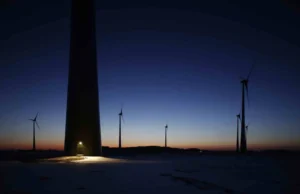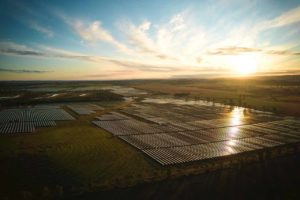An analysis of political donation information published by the electoral commission on Monday, completed by the Australian Conservation Foundation, shows that the fossil fuel industry continues to be a leading source of funds for the major parties, particularly the gas industry.
The fossil fuel industry contributed more than $1.3 million to political parties in the 2019/20 financial year, including almost $430,000 provided in donations.
The gas industry was the largest source of fossil fuel donations, contributing almost $700,000 to the major parties, with more than $315,000 provided by coal companies and mining lobby groups.
The top three fossil fuel political donors were Clive Palmer’s Minerology, which channelled a further $5.9 million into Palmer’s own political aspirations, followed by Woodside, donating $197,750 to the Coalition and $137,665 to Labor.
This was followed by Santos, donating $103,500, and Chevron, which donated a further $92,100.
Money was also channelled through lobby groups, providing an additional level of obfuscation around the sources of donations, with the Minerals Council of Australia contributing more than $145,000 to the major parties, along with gas lobby group APPEA, which contributed more than $83,000.
Owner of the Vales Point coal-fired power station, Trevor St Baker, donated more than $73,000 to the major parties in 2019/20 through a family trust and follows many years of donations to the Coalition and Labor parties.
Last year, St Baker secured an $8.7 million grant from the Morrison government to pay for upgrades at the Vales Point power station, which was provided through a special budget allocation for which only the Vales Point power station could apply.
The Liberal National Coalition was the biggest recipient of fossil fuel donations in the 2019/20 year, securing $731,534 in donations. This was followed by the Labor party, which received just short of $600,000 in fossil fuel cash.
Additional donations were indirectly channelled into the major parties through associated entities, such as the Liberal Party-aligned fundraising body, The Cormack Foundation, which recorded investment income of $541,302 from Rio Tinto and $462,212 from BHP.
The Australian Conservation Foundation said that the level of political donations flowing from the fossil fuel industry pointed to a worrying level of influence over both the Morrison government and the Labor opposition.
“Donations help big corporations gain greater access to decision makers and, over time, this access becomes influence,” the Australian Conservation Foundation’s democracy campaigner, Jolene Elberth, said.
“Gas companies continue to be some of the biggest fossil fuel donors to the major parties. When the government pushes a ‘gas-led recovery’, contrary to the science and the economics, voters have grounds to worry the gas industry has achieved unfair influence.”
“The consequences of listening to big donors, rather than the Australian public, means decisions are made that put corporate profits ahead of the health of people and the planet,” Elberth added.
While the publication of donation information by the Australian Electoral Commission shines some light onto how money can be used to secure influence with political parties, the source of the majority of federal political donations is still unknown.
Political parties are only required to disclose donations greater than the disclosure threshold, set at $15,000, meaning many substantial donations will never be publicly disclosed, and have been labelled ‘dark money’.
The Centre for Public Integrity, which has called for reforms to political donation disclosure laws, said the regime was currently allowing a high-level of influence without much public scrutiny.
“The federal disclosure scheme is mis-named – it is a non-disclosure scheme with more than a third of political funding shrouded in secrecy,” Centre for Public Integrity director, Professor Joo Cheong Tham, said.
“The absence of caps on political donations has permitted a handful of donors to dominate the funding of political parties. That the most significant level of government has the weakest political finance laws is a grave weakness of Australian democracy.”










